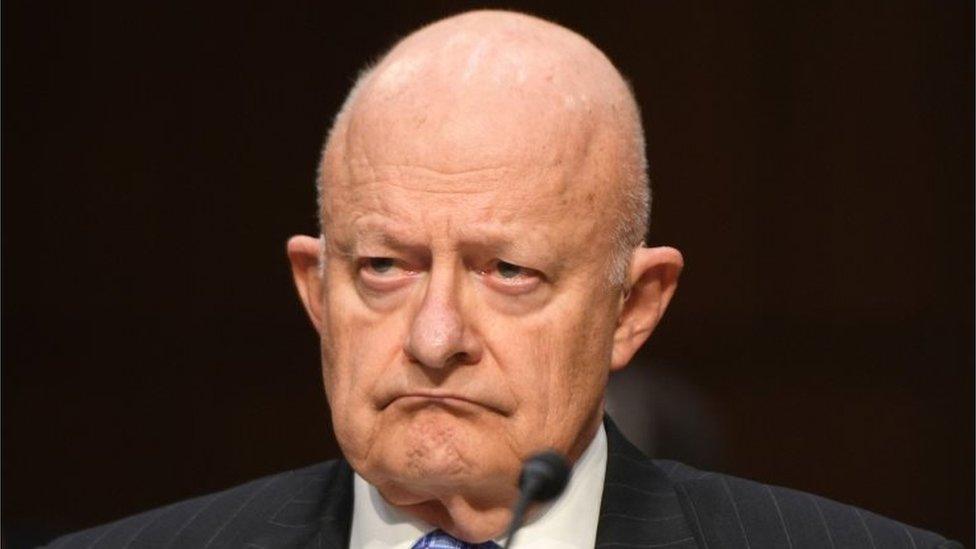Trump-Russia inquiry: President 'probed for obstruction of justice'
- Published
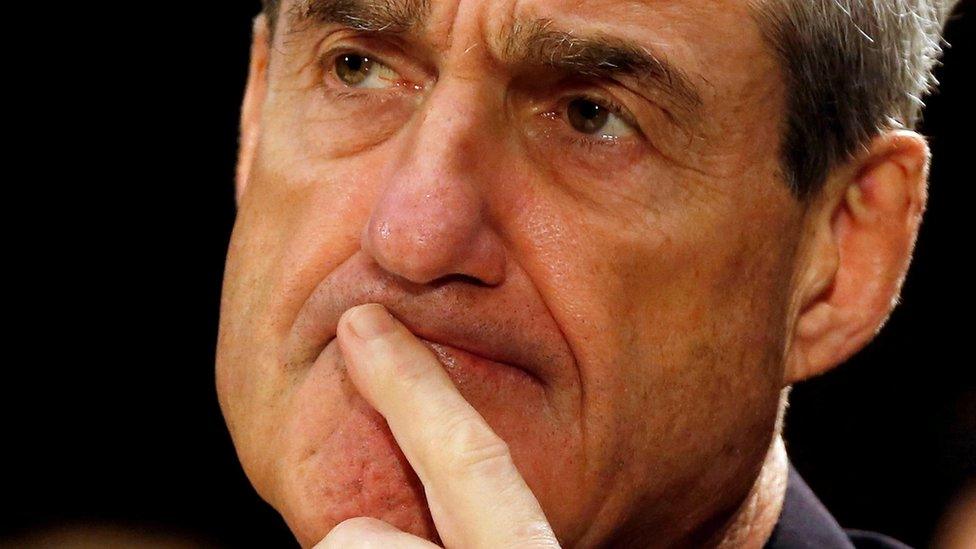
Robert Mueller is overseeing the investigation into Russia's alleged meddling and any Trump links
President Donald Trump is being investigated by special counsel Robert Mueller for possible obstruction of justice, US media reports say.
They say senior intelligence officials will be interviewed on whether Mr Trump tried to end an inquiry into his sacked national security adviser, and about the firing of FBI chief James Comey.
Mr Trump tweeted that the move was the latest action in a "phony story".
Mr Mueller is leading an FBI inquiry into Russian meddling in the election.
President Trump has repeatedly denied any collusion with Russia. On Thursday, he described the ongoing inquiry as a "witch hunt" that was "led by some very bad and conflicted people".
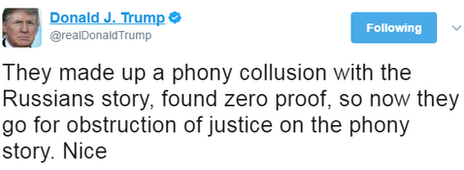
The latest development was first carried in the Washington Post, external. Later the New York Times, external and Wall St Journal, external reported the story, citing their own sources.
The Washington Post says the decision by Mr Mueller to investigate President Trump's own conduct is a major turning point in the investigation, which until recently focused on the Russian angle.
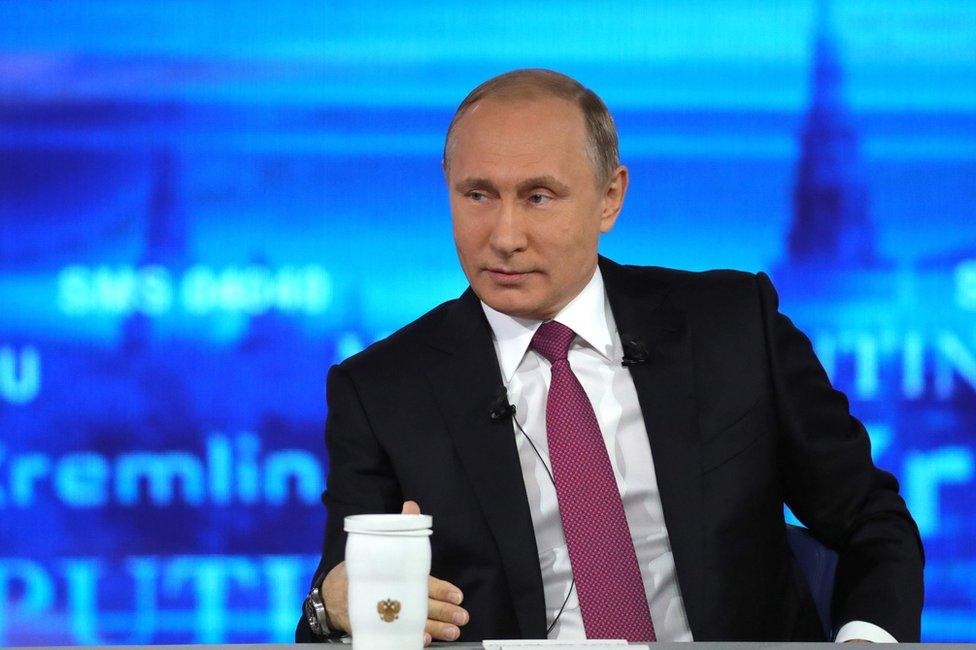
Mr Putin was speaking on his annual live phone-in
Russian President Vladimir Putin has joked about Mr Comey's testimony, saying the fact that he had admitted leaking details of his conversations with President Trump to the media put him in the same category as US whistleblower Edward Snowden, who was granted asylum in Russia.
"What's the difference between the FBI head and Mr Snowden then?" Mr Putin asked during a live phone-in with the Russian public in Moscow, adding, "By the way, if he is persecuted in this respect, we will be ready to give him political asylum in Russia too."
Why is the president being investigated?
The latest media reports say the obstruction of justice investigation began just days after President Trump fired Mr Comey on 9 May.
Mr Comey, who had been leading one of several Russia inquiries, testified to Congress last week that Mr Trump had pressured him to drop the investigation into former National Security Adviser Michael Flynn.
Mr Flynn was sacked in February for failing to reveal the extent of his contacts with Sergei Kislyak, the Russian ambassador to Washington.
Mr Comey testified under oath that Mr Trump had told him during a private meeting: "I hope you can see your way clear to letting this go, to letting Flynn go. He is a good guy. I hope you can let this go."
The White House has said the president "has never asked Mr Comey or anyone else to end any investigation, including any investigation involving General Flynn".
Mr Comey had testified he was "sure" Mr Mueller was looking at whether Mr Trump had obstructed justice.
Comey's most revealing moments
But Mr Comey also testified that, to his knowledge, the president had not tried to stop the Russia investigation.
However, the Wall St Journal quoted a source as saying that Mr Mueller would examine whether Mr Comey's sacking was an attempt by the president to alter the course of the investigation.
President Trump said in a TV interview that he had fired the FBI chief because of the "Russia thing".
Mr Trump reportedly told Russian officials at an Oval Office meeting a day after sacking Mr Comey that his position had now eased.
"I faced great pressure because of Russia. That's taken off," Mr Trump said, according to a US official quoted by the New York Times, external.
Trump says he made the decision to fire Comey - that's not what the White House originally said.
Anything else to be examined?
The latest reports also speak of an investigation into possible money laundering among Trump associates.
A former senior official told the New York Times that any collusion between the Trump team and Russian officials would have involved a pay-off, and that there may have been attempts to hide the route of the payments by using offshore banking.
Who is going to be interviewed?
The three names being mentioned in US media are Daniel Coats, the director of national intelligence, Mike Rogers, the head of the National Security Agency, and Richard Ledgett, until recently Mr Rogers's deputy.
At a Senate panel last week, Mr Coats and Admiral Rogers said they had never felt pressured to interfere in investigations.
The three were not involved in the Trump campaign but may be asked whether Mr Trump sought their help to end the Flynn inquiry.
How Michael Flynn became entangled in Russia probe
A separate Washington Post report has said that Mr Coats told associates in March that the president had asked him to try to get the FBI to back off.
However, the Times points out that the latest questioning does not mean a criminal case is being built against the president, simply that information is being gathered by the FBI. It will be passed to prosecutors who will then have to decide.
Has the president responded?
He tweeted early on Thursday morning, saying: "They made up a phony collusion with the Russians story, found zero proof, so now they go for obstruction of justice on the phony story. Nice."
His legal team responded angrily on Wednesday evening about the leaked information.
Mark Corallo, a spokesman for Mr Trump's lawyer, Marc Kasowitz, said: "The FBI leak of information regarding the president is outrageous, inexcusable and illegal."

Mr Trump has repeatedly railed against leaks from the FBI, saying this is the important story, not alleged collusion with Russia, which he has dismissed as "fake news".
The New York Times reports that Mr Trump has considered firing Mr Mueller, external in recent days but has been talked out of it by aides.

Uncharted terrain: Anthony Zurcher, BBC North America reporter

James Comey hinted at it. Washington insiders suspected it. Now US media are reporting it (through anonymous sources, of course).
Donald Trump himself is under direct investigation for obstruction of justice by the special counsel's office.
Take all those previous assertions by the president that he's not the target of law enforcement efforts, and throw them out the window.
Mr Trump will surely insist that the inquiry into whether his campaign had ties to Russia is still a hoax perpetrated by Democrats and a hostile media, and that the obstruction allegations are built on that empty foundation.
That may not matter. "It's not the crime; it's the cover-up," may be a hackneyed political saying, but that doesn't mean it lacks a kernel of truth.
There's still an open question as to what, exactly, could happen if Mr Mueller does find the president violated the law in acting to disrupt an ongoing investigation.
Could charges be filed? Would it fall on the House of Representatives to act?
It's all uncharted legal terrain.
If the latest media reports are correct, however, Mr Mueller may be charting a course for the darkness.

- Published9 June 2017
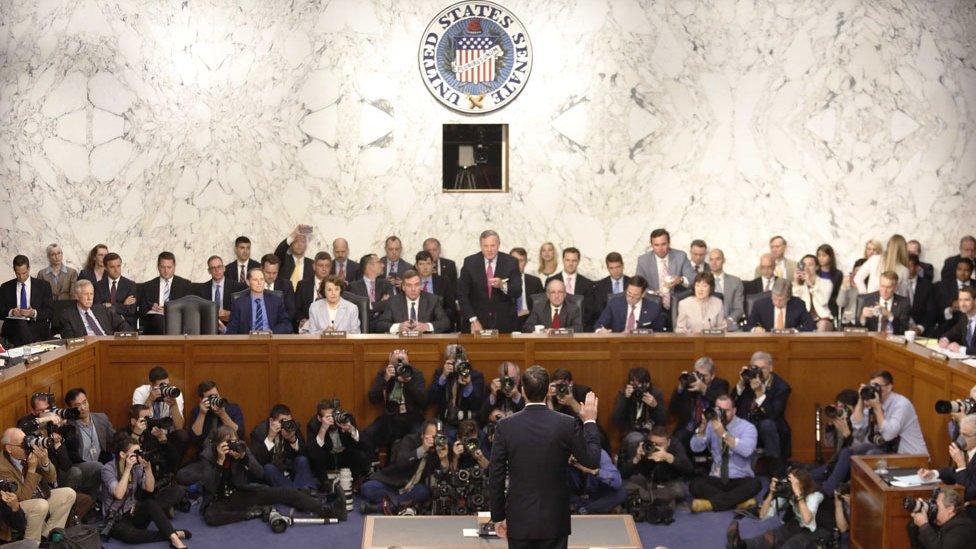
- Published12 July 2017
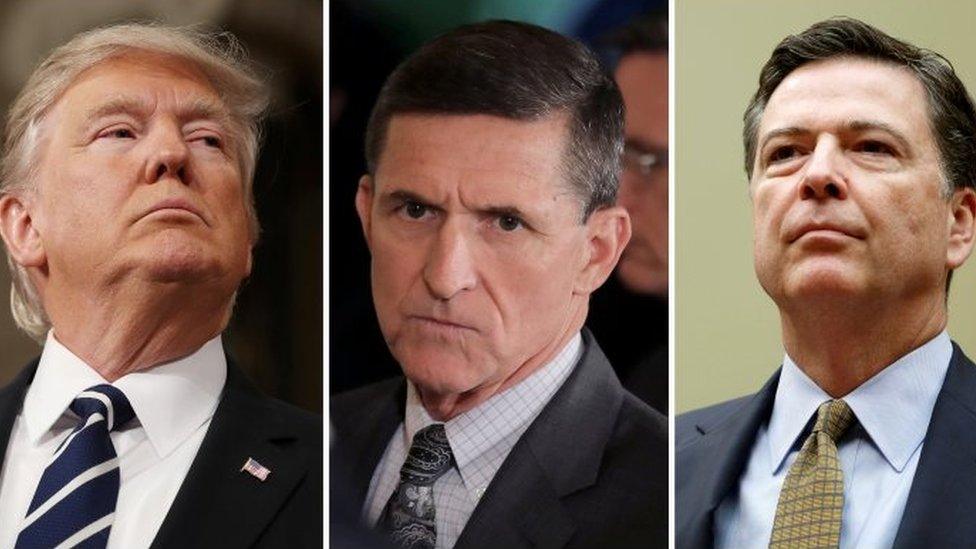
- Published13 June 2017
- Published14 September 2018
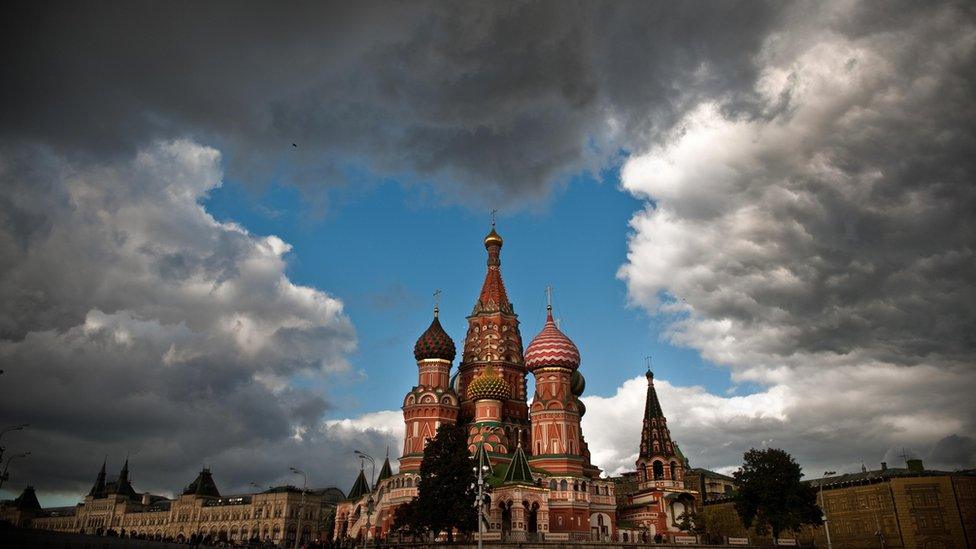
- Published21 December 2017
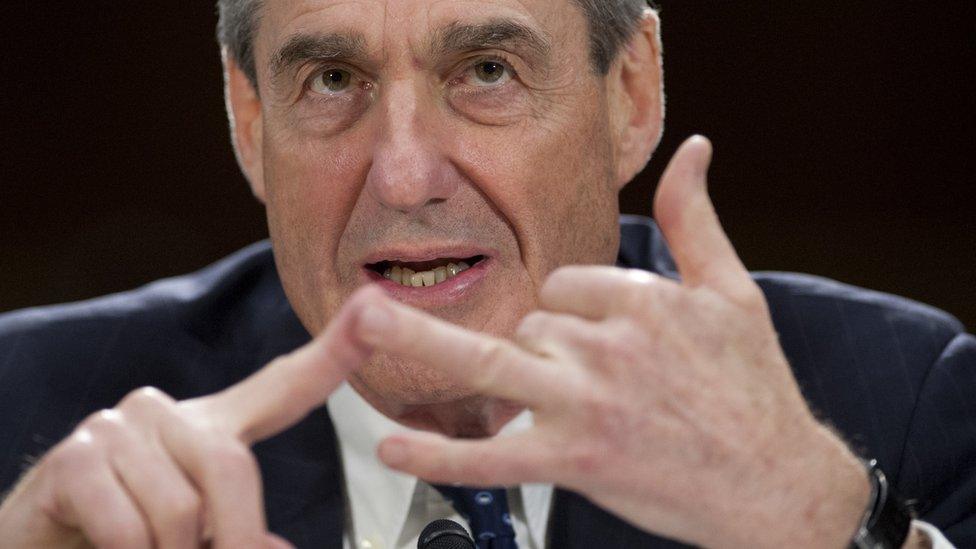
- Published24 July 2019
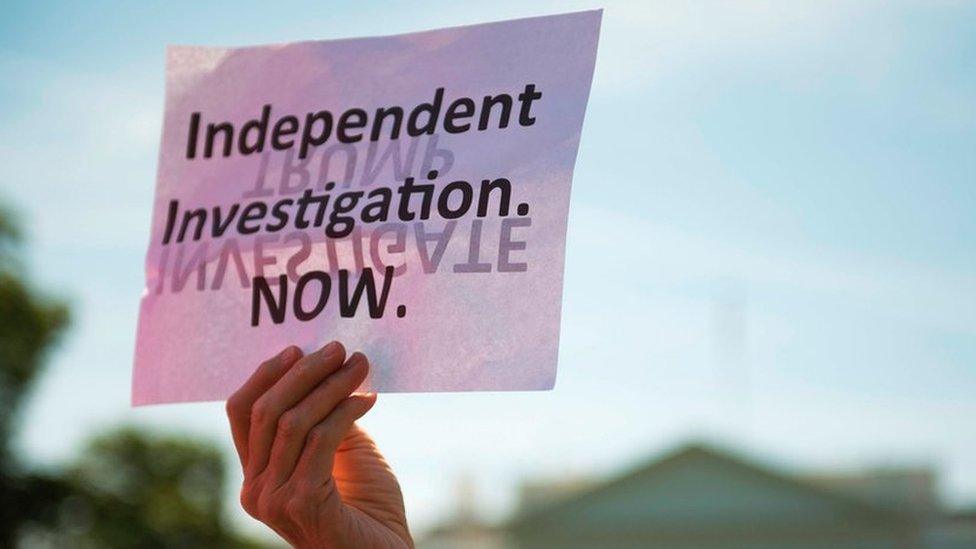
- Published26 May 2017
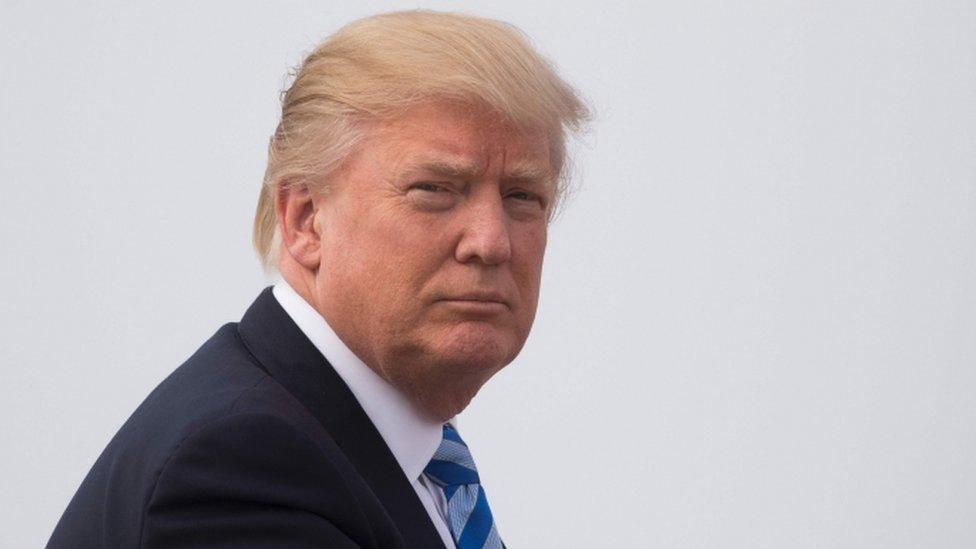
- Published8 June 2017
